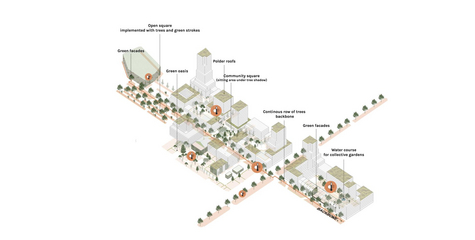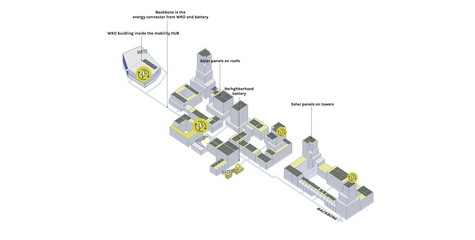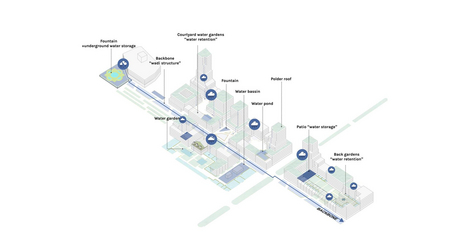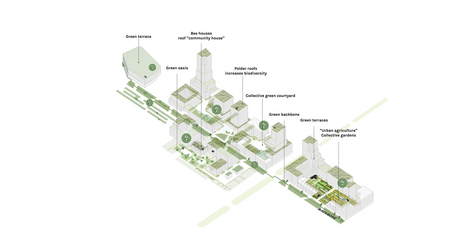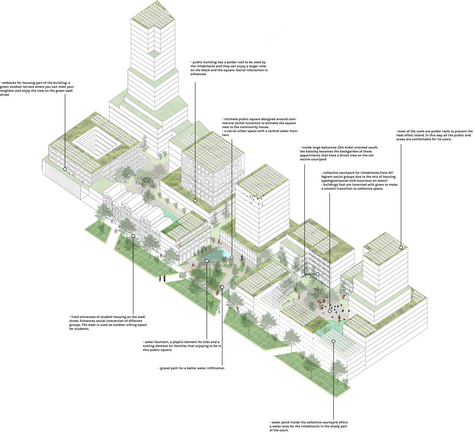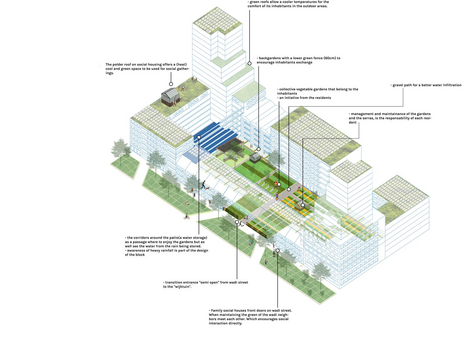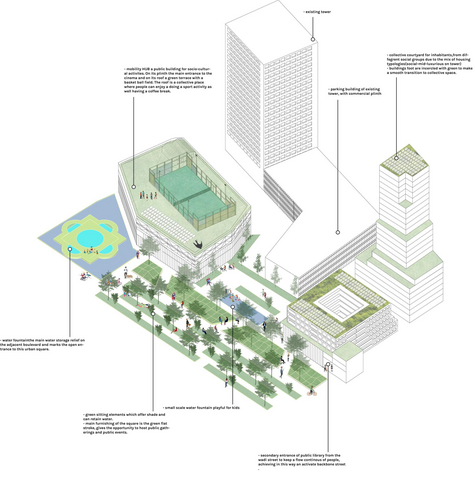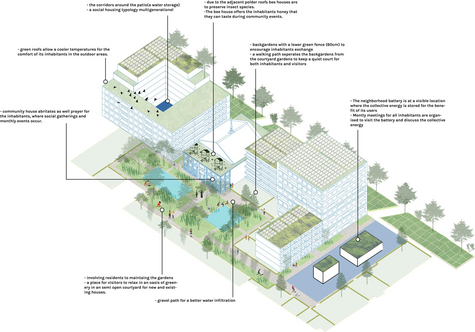Imane Boutanzit
Can climate change help social cohesion?
The Hague as a showcase
Climate change is becoming an important element in our life across the globe. The global climate is changing in an extreme way and is turning against us, that forces us into uncertain future.
As professionals we owe it to ourselves to respond to this Global phenomenon. I believe that our future cities need to cope with the changes of climate. It is already the case, adaptive and resilient cities, but is it enough? Are technical solutions the adequate answer? Can these solutions sustain a better environment for everyone or only for a privileged society that can afford it?
The impact of climate change used to be mainly focused on the physical impact, the major impact on the nature. Over time, more attention has been raised on the societal impact. Evidence has been presented regarding the relationship between global climate change and poverty (and the quality of life). Although, the link between climate change and inequality within countries have not yet received enough attention.
Bruno Latour in his book "Down to Earth" arguments the urgency of finding a new place to live in or dealing immediately and taking action in this new climate regime, the regime of growing inequalities within a climatic mutation. An urgency ignored by world leaders.
Until you are not touched economically and socially, you do not relate to the question of the changing climate. This graduation project is looking for links and answers for climate change and social inequalities. How can climate resilient and adaptive goals increase social cohesion?
The Hague should be and remain a healthy and appealing city for all inhabitants that want to live in. This implies, for example, that there must be sufficient affordable housing. It also means that inhabitants must live in their neighborhoods where they may enjoy a suitable, pleasant, clean and safe living environment. No matter what ethnicity and social class they belong to. In order to do so this graduation project shows how specific and adequate sustainability solutions do not only serve the changing climate but also enhance and create social mix where you do not expect it to happen.
Climate change can help social cohesion, if and only if the task is to put investments from climate adaptation goals towards an integral approach into improving everyone’s quality of life.
Graduation date: 30 augustus 2021
Graduation committee: Martin Aarts (mentor), Jaap Brouwer, Tess Broekmans
Additional members for the exam: Maud Aarts, Hans van der Made

